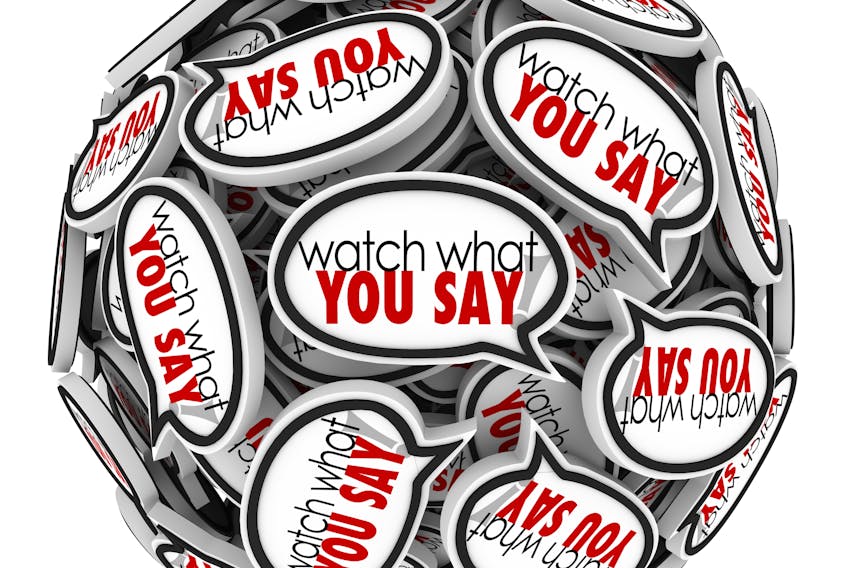ST. JOHN'S, N.L. — Words can be beautiful.
They can also be downright wooden.
They can transport you with an image you’ve never thought of, delight you with their balance and interplay, and lead you in new directions. Used properly an carefully, they can set you off in new directions as completely as music can.
They can also clog your brain with needless complexity, forcing you to stop reading and causing you to have to try to figure out what the writer or speaker is trying to say.
When an aquaculture company spokesman, for example, talks about “mortalities” instead of talking about “dead salmon,” it takes you a second to catch up with the fact that the two are the same thing — except that the clinical “mortalities” sounds somehow tidier.
When a municipal leader says the city is “engaging” in “conversations” about an air link between St. John’s and Europe, your head sort of stalls while you consider just what that “engagement” actually looks like. Then you can get back to engaging with the mastication and digestion of your breakfast bagel, and the sipping of your thermally-enhanced caffeine delivery system (your coffee).
... let’s all use clear and straightforward language to describe what we mean and the world around us.
In Halifax on Monday, CBC Nova Scotia reported, a man was, “sprayed with ignitable fluid” and was injured “when the fluid was briefly ignited.” So, someone tried to set a man on fire. (That’s much simpler.) But the story then says, “Another man nearby was sprayed with a sensory irritant.”
Jargon much? It burns almost as much as the pepper spray.
Police reports are regularly guilty of it: three times in Monday’s report on Royal Newfoundland Constabulary activities, “Operational Patrol Services” officers dealt with suspects who “presented a weapon.” In at least one case, an RNC police dog was used with “the assistance of containment by Operational Patrol Services.”
Everybody seems to be guilty of it: using four words where one word would do.
Now, larded-up sentences may lend some imagined gravitas — for politicians, it may fill up space and allow them to get their thoughts in order. (Or, if what they say is confusing enough, it may allow for the later comfortable denial of, “Clearly, that’s not what I meant,” or “That was taken out of context.”)
It would be a great New Year’s resolution for everyone, from the media to politicians to business leaders, and there’s still a couple of months left to work up to it: let’s all use clear and straightforward language to describe what we mean and the world around us. Artful? Sure. Obtuse? Let’s give it a pass.
If not, (if you’ll forgive us for the blunt language) we’ll cede the stage to comedian and actor W.C. Fields and recognize that some will always depend on the adage, “If you can’t dazzle them with brilliance, baffle them with bullshit.”









